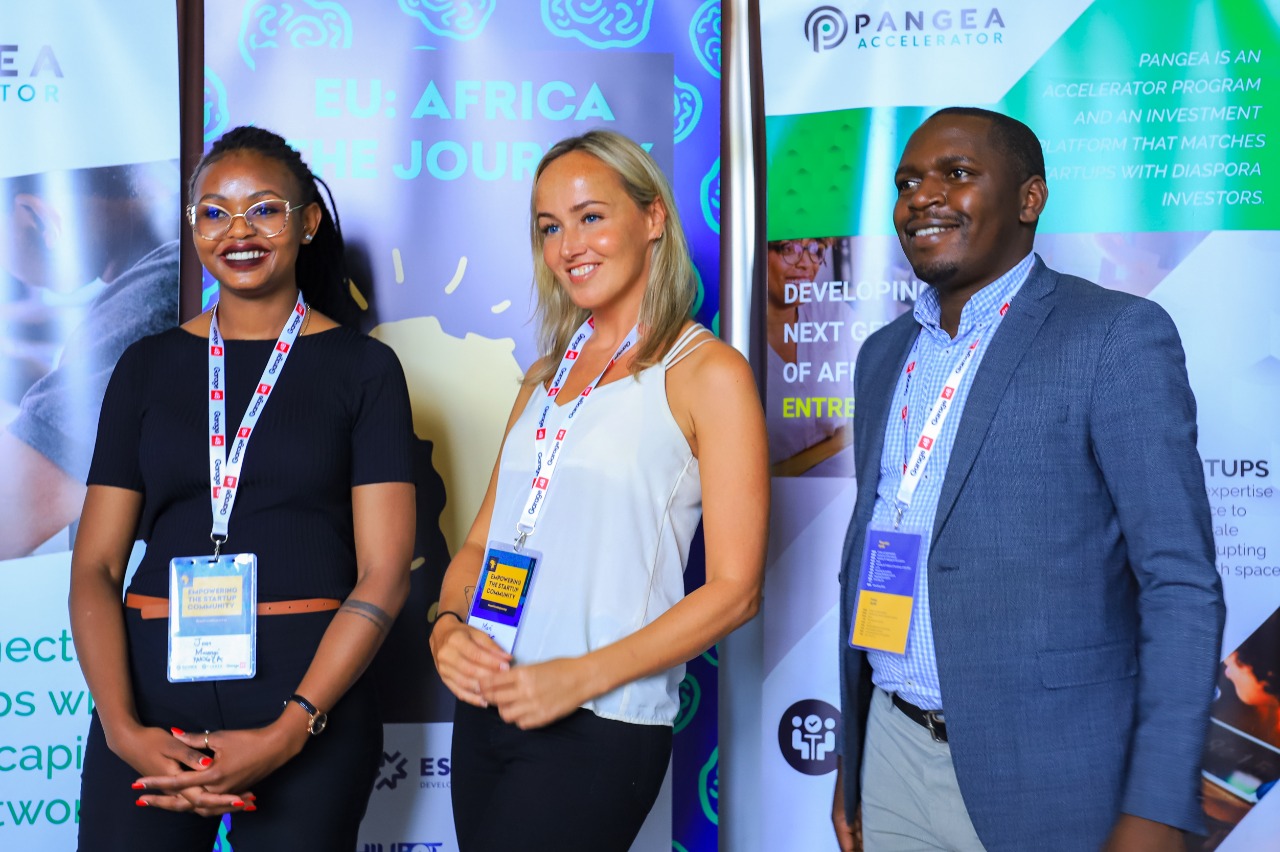advertisement
Harnessing Growth Of The Start-up Ecosystem

There is no doubt that in the field of entrepreneurship, startup ecosystems play an important role. The entrepreneur ecosystem, formed by startups in their various stages, and entities such as investors, accelerators, regulatory, legal and financial, service providers, and government agencies contribute to the shift and evolution from traditional enterprise to a growth-oriented enterprise.
Over the past two decades, there has been an escalation in both the number of policy initiatives and the level of funding committed with an intention to add value to enterprises, whose initiatives immensely contribute to the sustained economic development of a country and by extension a region.
With this hindsight, Pangea Accelerator flanked by Garage 48 with support from the Estonian Ministry of Foreign Affairs Development Cooperation Fund, the recent hosting of leading start-ups in a two-day workshop in Nairobi, Kenya to design solutions for challenges that the startups in the region are facing couldn’t have come at a better time.
advertisement
Themed: Empowering the Startup Community, the workshop geared to de-bunking the complexities in the interaction of these players affirmed that a startup ecosystem has the capacity to empower entrepreneurs to develop new ideas and bring a thriving innovation to the market.
“Having this opportunity to cooperate with leading East Africa ecosystem players is a big opportunity for us, specifically now that we need to focus on economic recovery from the effects of Covid 19. Besides, it is exciting to partner with a key player in the Estonian ecosystem said CEO and Co-Founder of Pangea Accelerator Jonas Tesfu in his keynote remarks adding; “Estonia is by far a global leader on e-governance and innovation, hence the need for us to learn from their experience.”
Against the background of enhancing the growth of Eastern Africa’s startup ecosystem, the workshop hosting delegates from incubation hubs and entrepreneur support organizations from Ethiopia, Kenya, Rwanda, Somalia, Tanzania, and Uganda were in concurrence that a major area of strength for the ecosystem is human capital, while market conditions currently present the greatest challenge.
advertisement
The industry players noted that imbalances in the start-up ecosystem within the region pose negative impacts, because the deficiencies, which even if it touches on one area may completely impede the growth of entrepreneurship. Case in point, an excellent infrastructure is of limited use if there are no funding opportunities available to initiate a new venture.
Parameters determining the start-up growth domains range from human capital, access to finance, the liveliness of the startups, quality of infrastructure, the country’s macro framework (describing the political and legal system), and market conditions (such as trade balance and capacity utilisation).
In developing countries, increasing the number of high-growth start-up firms is steadily emerging as a major focus for industry policy. However, owing to some existing approaches that are proving ineffective, there was a need for the successful start-ups across the East African region to converge, purposely to ignite a journey of supportive framework conditions that can support the Micro Small Medium Enterprises (MSMEs) and the Small Medium Entreprises (SMEs).
advertisement
Ideally, the quest to creating a favorable environment for start-ups is purposed to leading to the creation of more high-growth firms. The entrepreneurship ecosystem approach has emerged as a response asserts Dr. Patrice Habinshuti, Chief Operations Officer (COO). It recognizes that SMEs thrive in distinctive types of supportive environments that range from entrepreneur-led initiatives – whereby successful cashed-out entrepreneurs reinvest their time, money, and expertise in supporting new entrepreneurial activity; and an information-rich environment in which this information is both accessible and shared.
There have been varying support for growth-oriented entrepreneurship according to Nnassunna Mirembe, Founder and CEO, MAKA Pads in Uganda. With an emphasis that policy-makers and the enterprise industry players should always take a moment to refresh, reboot, and start again, Mirembe’s emphasis that emerging enterprises do not only create jobs directly but have important spill-over effects that are beneficial to the growth of other firms in the same locality and industrial cluster is evidence that focussed SMEs are providing an important stimulus within economies by increasing competition, promoting innovation and heightening the efficient allocation of resources within economies.
According to the delegates creating successful entrepreneurial ecosystems calls for policy-makers to take a holistic approach, focusing on the following entrepreneurial actors within the ecosystem; the resource providers within the ecosystem; entrepreneurial connectors within the ecosystem, and the entrepreneurial environment of the ecosystem.
It is important that policy-makers develop metrics in order to determine the strengths and weaknesses of individual ecosystems so that their strengths and weaknesses can be assessed, to identify whether and how to intervene and monitor over time the effectiveness of such interventions.